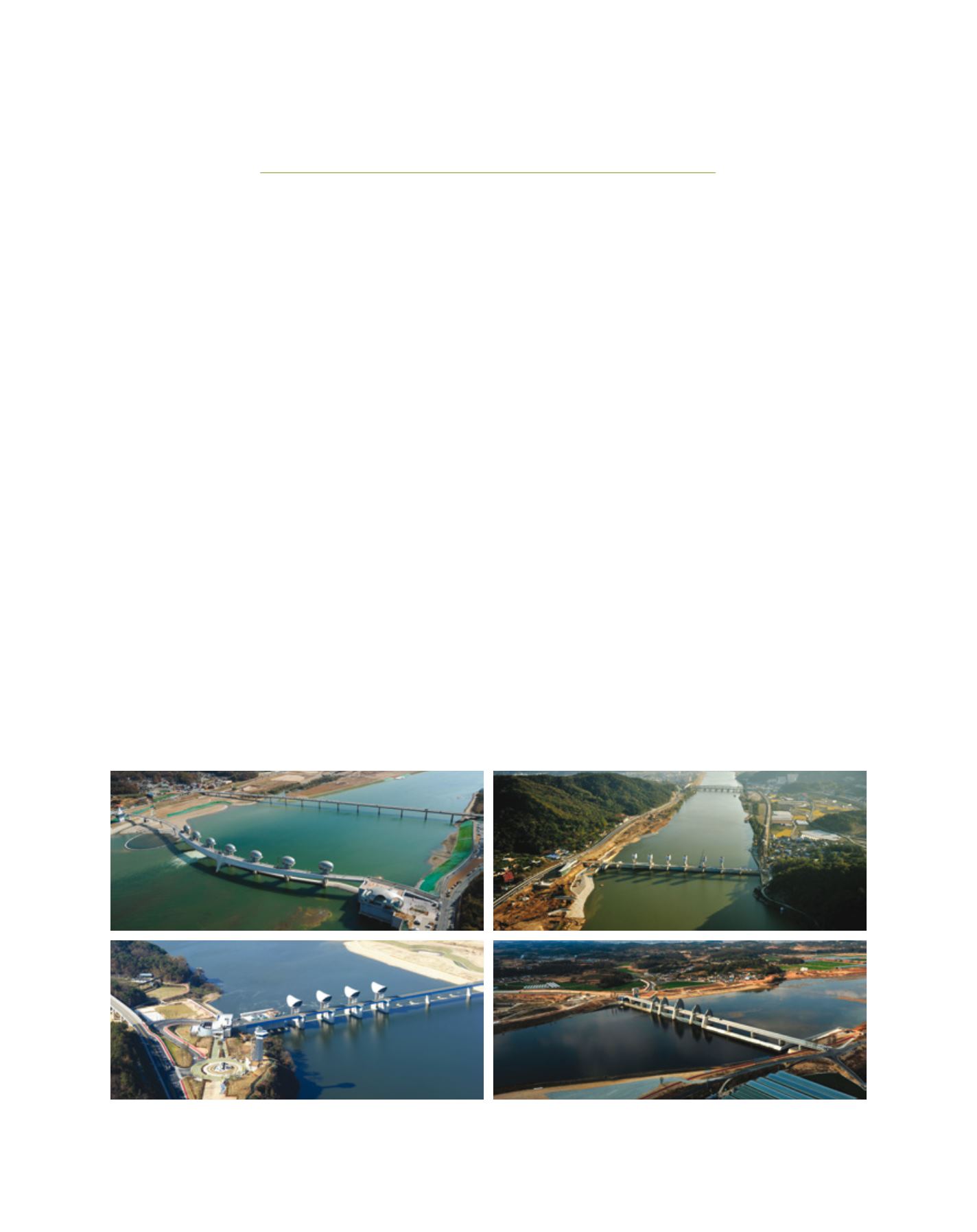

[
] 203
Water cooperation in Korea
Boosik Kang, Dept. of Civil & Environmental Engineering, Dankook University and Korea Water Resources Association
W
ater cooperation requires a series of international and
local actors to work together to secure better water
services. Korea’s practices on water cooperation
include its involvement in international water events, such as
hosting the 7th World Water Forum in 2015, and an increase of
its official development assistance (ODA) in the water sector. The
launch of the Four Major Rivers Restoration Project (Four Rivers
Project) in 2009-2012 illustrates Korea’s technical and strategic
vision on how to overcome water challenges in the face of climate
change, and its commitment to aiding developing countries based
on its experience of the project. Korea is committed to multi-
stakeholder cooperation for water decision-making.
The Environmental Outlook to 2050 published by the Organisation
for Economic Cooperation and Development (OECD) evaluated the
Republic of Korea as the highest water-stressed country among the 34
OECD members. Korea abstracted more than 40 per cent of its total
average renewable water yield in 2009, putting its water balance at
risk. The country receives 60-70 per cent of its total annual precipita-
tion in the flood season from June to September, while severe droughts
frequently occur in spring and winter. These phenomena require
sophisticated and careful water resources management systems.
Confronted with such challenges, the Korean Government has contin-
ued to undertake technology development and investment in order
to provide a high level of water services and secure water resources
through structural and non-structural methods. The
Government has also striven to foster water industries
and support developing countries through ODA projects.
Korea’s engagement in water cooperation at the interna-
tional level has a rather short history, but has accelerated in
recent years. One of the most significant achievements is
Korea’s successful bid to host the 7thWorldWater Forum,
whichwill be held inDaegu-Gyeongbuk in 2015. More than
30,000people fromover 200 countries are expected to attend
the event. The five institutions of Korea – the Ministry of
Land, Infrastructure and Transportation, K-water, the Korea
Water Forum, the Korea Water Resources Association
(KWRA) and the Global GreenGrowth Institute (GGGI)–
were elected to the Board of Governors of the WorldWater
Council (WWC) at the meeting of the United Nations
General Assembly inMarseilles, France in 2012. The board
consists of 36 members and advises the council’s overall
strategy and work scope. The Republic of Korea is now
home to the largest number of WWC governors.
Another example can be found in Korea’s effort to
support the establishment of water and environment-
related international institutions within the country.
Examples include the Green Climate Fund of the
United Nations Framework Convention on Climate
Change; GGGI; the United Nations International
W
ater
C
ooperation
, S
ustainability
and
P
overty
E
radication
Multipurpose weirs in Korea’s four major rivers, clockwise from top left: Yeoju Weir, Han River; Chilgok Weir, Nakdong River;
Seungchon Weir, Youngsan River; and Buyeo Weir, Geum River
Images: Ministry of Land, Infrastructure and Transport


















